| Listing 1 - 10 of 12 | << page >> |
Sort by
|
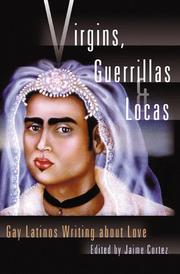
ISBN: 1573440876 Year: 1999 Publisher: San Francisco (Calif.) : Cleis press,
Abstract | Keywords | Export | Availability | Bookmark
 Loading...
Loading...Choose an application
- Reference Manager
- EndNote
- RefWorks (Direct export to RefWorks)
Gay men --- Gay men --- Hispanic American gays --- Hispanic American gays --- Hispanic American men --- Hispanic American men --- Love
Book
ISBN: 1579227899 9781579227890 9781579227906 1579227902 9781579227876 1579227872 9781579227883 1579227880 1003444555 1000972070 1000977277 Year: 2016 Publisher: Dulles
Abstract | Keywords | Export | Availability | Bookmark
 Loading...
Loading...Choose an application
- Reference Manager
- EndNote
- RefWorks (Direct export to RefWorks)
Hispanic American men --- Men, Hispanic American --- Men --- Education (Higher) --- Social aspects.
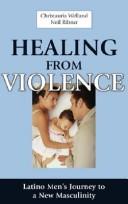
ISBN: 1281133191 9786611133191 082612478X 9780826124784 9781281133199 9780826124777 0826124771 Year: 2008 Publisher: New York Springer Pub.
Abstract | Keywords | Export | Availability | Bookmark
 Loading...
Loading...Choose an application
- Reference Manager
- EndNote
- RefWorks (Direct export to RefWorks)
Latinos are the fastest growing minority population in the United States. According to the 2000 Census, Latinos accounted for 12.5% of the US population, or 35.3 million residents. The influence of this large and growing demographic can be seen throughout every discipline, including social work, where numerous books on multicultural assessment, counseling, and research have begun to appear. One area of inquiry, however, that remains largely unexplored is domestic violence within Latino families. Although it appears that such violence occurs more frequently in Latino families than in Caucasian
Marital violence --- Hispanic American men --- Abusive men --- Abusive boyfriends --- Abusive fathers --- Abusive husbands --- Batterers, Male --- Male batterers --- Men --- Men, Hispanic American --- Psychology. --- Behavior modification
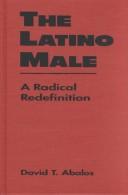
ISBN: 1588261522 9781588261526 1555879063 1555879349 9781555879068 9781555879341 Year: 2022 Publisher: Boulder
Abstract | Keywords | Export | Availability | Bookmark
 Loading...
Loading...Choose an application
- Reference Manager
- EndNote
- RefWorks (Direct export to RefWorks)
What does it mean to be a Latino man in the United States today? David Abalos shows how the traditional cultural stories—the male roles of the mujeriego (the womanizer), the macho, and the patriarch—are becoming unlivable. Too many men choose manipulation, power, or violence in response, in an effort to restore the old order. But there is an alternative, argues Abalos. Demonstrating that Latino men can participate in the creation of a new way of living, Abalos boldly reconsiders how the personal can be political. He redefines machismo as the pride in self that allows Latino men to choose and create new and better stories for themselves as faithful lover, as political innovator, as archetypal guide. And he shows how the transforming Latina/o family can generate a new and vital comunidad Latina in the United States.
Hispanic American men --- Sex role --- Machismo --- Social change --- Hispanic American families. --- Families, Hispanic American --- Hispanic Americans --- Families --- Masculinity --- Men, Hispanic American --- Men --- Social conditions. --- Psychology.
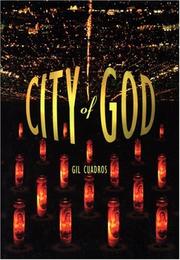
ISBN: 087286295X Year: 1994 Publisher: San Francisco (Calif.) : City lights,
Abstract | Keywords | Export | Availability | Bookmark
 Loading...
Loading...Choose an application
- Reference Manager
- EndNote
- RefWorks (Direct export to RefWorks)
AIDS (Disease) --- Gay men --- Hispanic American gays --- Hispanic American men --- Hispanic Americans --- Patients --- Literary collections. --- Literary collections. --- Literary collections. --- Literary collections. --- Literary collections.
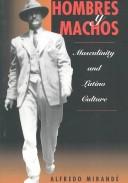
ISBN: 081333196X 0813331978 Year: 1997 Publisher: Boulder, Colo. : Westview Press,
Abstract | Keywords | Export | Availability | Bookmark
 Loading...
Loading...Choose an application
- Reference Manager
- EndNote
- RefWorks (Direct export to RefWorks)
Hispanic American men --- Hispanic American men --- Masculinity --- Machismo --- Sex role --- Hommes américains d'origine latino-américaine --- Hommes américains d'origine latino-américaine --- Hommes --- Machisme --- Rôle selon le sexe --- Psychology. --- Social life and customs. --- Psychologie --- Moeurs et coutumes --- Identité
Book
ISBN: 9780226748740 9780226748887 022674888X 022674874X 022674891X Year: 2021 Publisher: Chicago The University of Chicago Press
Abstract | Keywords | Export | Availability | Bookmark
 Loading...
Loading...Choose an application
- Reference Manager
- EndNote
- RefWorks (Direct export to RefWorks)
"You know the scene: huge numbers of amateur soccer players in their pinnies, scores of spectators under umbrellas, paletas vendors selling their wares from carts. Over the past half century, immigration from Latin America has transformed the public landscape in the United States, and numerous communities are witnessing one of the hallmarks of this transformation: the emergence of park soccer. In Fútbol in the Park, David Trouille takes us into the world of a group of Latino soccer players in southern California, showing us how socializing around the game actually works and what it really means for the predominantly Latino immigrant men who hang out, talk, argue, and even fight with great passion about a world they have created around playing soccer in a park. The men want to live rich, meaningful lives, and what they do together in the park helps them to accomplish this. Here they build relationships and a sense of who they are, separate from their identities elsewhere or their countries of origin. Together on the soccer field, sharing beers after the games, and occasionally exchanging taunts or blows, the men work on the meaning of their lives. And through these engrossing, revealing, and at times immortalizing activities, they forge new identities and connections, giving themselves a renewed sense of self-worth and community. The park becomes a place to anchor and enrich their lives in a new country. As the United States becomes increasingly polarized around issues of immigration and culture, Fútbol in the Park provides a needed look at the lives of migrants"--
Hispanic Americans --- Hispanic American men --- Soccer --- Social interaction --- Socialization --- Social life and customs. --- Social networks --- Social aspects --- Social life and customs --- Human interaction --- Interaction, Social --- Symbolic interaction --- Exchange theory (Sociology) --- Psychology --- Social psychology --- Association football --- English football --- European football --- Football (Soccer) --- Football --- Men, Hispanic American --- Men --- Hispanics (United States) --- Latino Americans --- Latinos (United States) --- Latinxs --- Spanish Americans in the United States --- Spanish-speaking people (United States) --- Spanish-surnamed people (United States) --- Ethnology --- Latin Americans --- Spanish Americans (Latin America) --- Hispanic Americans - Socialization - California, Southern. --- Hispanic American men - California, Southern - Social life and customs. --- Hispanic American men - Social networks - California, Southern. --- Soccer - Social aspects - California, Southern. --- Social interaction - California, Southern.
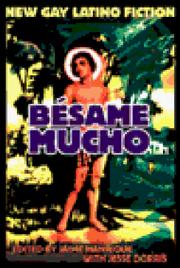
ISBN: 1891305069 Year: 1999 Publisher: New York (N.Y.) : Painted leaf press,
Abstract | Keywords | Export | Availability | Bookmark
 Loading...
Loading...Choose an application
- Reference Manager
- EndNote
- RefWorks (Direct export to RefWorks)
American fiction --- American fiction --- Gay men --- Hispanic American gays --- Hispanic American men --- Short stories, American. --- Short stories, Hispanic American (Spanish) --- Hispanic American authors. --- Male authors. --- Fiction. --- Fiction. --- Fiction. --- Translations into English.
Book
ISBN: 1282033387 9786612033384 0833046756 0833045636 128203345X 9786612033452 0833046861 083304561X 9780833046864 9780833046758 9781282033450 9780833045614 9780833045638 9781282033382 6612033452 Year: 2009 Publisher: Santa Monica, CA RAND Corp.
Abstract | Keywords | Export | Availability | Bookmark
 Loading...
Loading...Choose an application
- Reference Manager
- EndNote
- RefWorks (Direct export to RefWorks)
The study identifies some of the greatest disparities for boys and men of color relative to their white counterparts across specific socioeconomic, health, safety, and school readiness indicators in California and provides information about different strategies for reducing the disparities-including effective programs, practices, and policies-that can begin making an important difference in changing the life course of boys and men of color.
African American boys -- California -- Social conditions. --- African American men -- California -- Social conditions. --- Hispanic American boys -- California -- Social conditions. --- Hispanic American men -- California -- Social conditions. --- African American men --- African American boys --- Hispanic American men --- Hispanic American boys --- Gender & Ethnic Studies --- Social Sciences --- Ethnic & Race Studies --- Social conditions --- Social conditions. --- Men, Hispanic American --- Boys, Hispanic American --- Afro-American men --- Men, African American --- Afro-American boys --- African American men. --- Men --- Boys
Book
ISBN: 1479818127 9781479818129 9781479850099 9781479878123 1479850098 147987812X Year: 2013 Publisher: New York, NY
Abstract | Keywords | Export | Availability | Bookmark
 Loading...
Loading...Choose an application
- Reference Manager
- EndNote
- RefWorks (Direct export to RefWorks)
Winner, 2014 Distinguished Contribution to Research Award presented by the Latina/o Sociology Section of the American Sociological AssociationLos Angeles is the epicenter of the American gang problem. Rituals and customs from Los Angeles’ eastside gangs, including hand signals, graffiti, and clothing styles, have spread to small towns and big cities alike. Many see the problem with gangs as related to urban marginality—for a Latino immigrant population struggling with poverty and social integration, gangs offer a close-knit community. Yet, as Edward Orozco Flores argues in God’s Gangs, gang members can be successfully redirected out of gangs through efforts that change the context in which they find themselves, as well as their notions of what it means to be a man. Flores here illuminates how Latino men recover from gang life through involvement in urban, faith-based organizations. Drawing on participant observation and interviews with Homeboy Industries, a Jesuit-founded non-profit that is one of the largest gang intervention programs in the country, and with Victory Outreach, a Pentecostal ministry with over 600 chapters, Flores demonstrates that organizations such as these facilitate recovery from gang life by enabling gang members to reinvent themselves as family men and as members of their community. The book offers a window into the process of redefining masculinity. As Flores convincingly shows, gang members are not trapped in a cycle of poverty and marginality. With the help of urban ministries, such men construct a reformed barrio masculinity to distance themselves from gang life.
SOCIAL SCIENCE / Ethnic Studies / General. --- RELIGION / General. --- SOCIAL SCIENCE / Anthropology / General. --- Hispanic American men --- Church and social problems --- Church work with Hispanic Americans --- Ex-gang members --- Hispanic American gangs --- Men, Hispanic American --- Men --- Christianity and social problems --- Social problems and Christianity --- Social problems and the church --- Social problems --- Hispanic Americans --- Former gang members --- Gang members --- Gangs, Hispanic American --- Gangs --- Social conditions. --- Services for --- Rehabilitation
| Listing 1 - 10 of 12 | << page >> |
Sort by
|

 Search
Search Feedback
Feedback About UniCat
About UniCat  Help
Help News
News